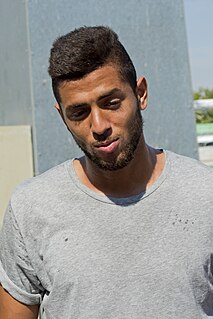The Muslim Brotherhood is an Islamic organization that was founded in Ismailia, Egypt by Hassan al-Banna in March 1928 as an Islamist religious, political, and social movement. The group spread to other Muslim countries but has its largest, or one of its largest, organizations in Egypt, where for many years it has been the largest, best-organized, and most disciplined political opposition force, despite a succession of government crackdowns in 1948, 1954, 1965 after plots, or alleged plots, of assassination and overthrow were uncovered. Following the 2011 Revolution the group was legalized, and in April 2011 it launched a civic political party called the Freedom and Justice Party (Egypt) to contest elections, including the 2012 presidential election when its candidate Mohamed Morsi became Egypt's first democratically elected president. One year later, however, following massive demonstrations, Morsi was overthrown by the military and arrested. As of 2014, the organization has been declared a terrorist group by Russia, Egypt, UAE, Saudi Arabia and is once again suffering a severe crackdown.

A presidential election was held in Egypt in two rounds, the first on 23 and 24 May 2012 and the second on 16 and 17 June. The Muslim Brotherhood declared early 18 June 2012, that its candidate, Mohamed Morsi, won Egypt's presidential election, which would be the first victory of an Islamist as head of state in the Arab world. It was the second presidential election in Egypt's history with more than one candidate, following the 2005 election, and the first presidential election after the 2011 Egyptian revolution which ousted president Hosni Mubarak, during the Arab Spring. Morsi, however, lasted little over a year before he was ousted in a military coup in July 2013.

The Egyptian revolution of 2011, also known as the January 25 Revolution, started on 25 January 2011 and spread across Egypt. The date was set by various youth groups to coincide with the annual Egyptian "Police holiday" as a statement against increasing police brutality during the last few years of Mubarak's presidency. It consisted of demonstrations, marches, occupations of plazas, non-violent civil resistance, acts of civil disobedience and strikes. Millions of protesters from a range of socio-economic and religious backgrounds demanded the overthrow of Egyptian President Hosni Mubarak. Violent clashes between security forces and protesters resulted in at least 846 people killed and over 6,000 injured. Protesters retaliated by burning over 90 police stations across the country.
An emergency law was first enacted in Egypt in 1958, as Law No. 162 of 1958. A state of emergency was declared in 1967 during the 1967 Arab–Israeli War which lasted until 1980. After a break of 18 months, a state of emergency was reimposed following the assassination of President Anwar Sadat in 1981, and was repeatedly extended every three years. The continuous state of emergency was one of the grievances of demonstrators giving rise to the Egyptian Revolution of 2011.

The Supreme Council of the Armed Forces is a statutory body of between 20 and 25 senior Egyptian military officers and is headed by Field Marshal Abdul Fatah al-Sisi and Lieutenant General Sedki Sobhi. The council is convened only in cases of war or great internal emergencies. As a consequence of the Egyptian Revolution of 2011, SCAF assumed power to govern Egypt from departing President Hosni Mubarak on 11 February 2011, and relinquished power on 30 June 2012 upon the start of Mohamed Morsi's term as president.

A parliamentary election to the People's Assembly of Egypt was held from 28 November 2011 to 11 January 2012, following the revolution that ousted President Hosni Mubarak, after which the Supreme Council of the Armed Forces (SCAF) dissolved the parliament of Egypt. However the dissolution was ruled unconstitutional and Parliament was reinstated. Originally, the elections had been scheduled to be held in September 2011, but was postponed amid concerns that established parties would gain undue advantage.

The Egyptian Crisis began with the Egyptian revolution of 2011, when hundreds of thousands of Egyptians took to the streets in an ideologically and socially diverse mass protest movement that ultimately forced longtime president Hosni Mubarak from office. A protracted political crisis ensued, with the Supreme Council of the Armed Forces taking control of the country until a series of popular elections brought the Muslim Brotherhood to power. However, disputes between elected Islamist president Mohamed Morsi and secularists continued until the anti-government protests in June 2013 that led to the overthrow of Morsi in 2013, in what has been variably described as a coup d'état or as an ending to the second revolution, or both. Abdel Fattah el-Sisi, who announced the overthrow of Morsi, then became the leader of Egypt the following year, winning election to the presidency in a landslide victory described by EU observers as free but not necessarily fair. Nonetheless, Sisi's election was widely recognized, and the political situation has largely stabilized since he officially took power; however, some protests have continued despite a government crackdown. The crisis has also spawned an ongoing insurgency led by Ansar Bait al-Maqdis in the Sinai Peninsula, which became increasingly intertwined with the regional conflict against the Islamic State of Iraq and the Levant later in 2014.

Essam Abdel-Aziz Sharaf is an Egyptian academic who was the Prime Minister of Egypt from 3 March 2011 to 7 December 2011. He served as Minister of Transportation from 2004 to 2005.

Human rights in the post-Mubarak transition have been the subject of concern and controversy since the 2011 Egyptian revolution. The Supreme Council of the Armed Forces (SCAF) Arabic: المجلس الأعلى للقوات المسلحة, al-Maǧlis al-ʾAʿlā lil-Quwwāt al-Musallaḥah in particular have been the focus of concerns about human rights violations. The SCAF, which consists of a body of 20 senior officers in the Egyptian military, was handed the power to govern Egypt after the ouster of President Hosni Mubarak on 11 February 2011 as a consequence of the revolution.

Mona Seif is an Egyptian human rights activist known for her participation in dissident movements during and after the 2011 Egyptian revolution, for her creative use of social media in campaigns, and for her work to end military trials for civilian protesters. She is a biology graduate student, investigating the BRCA1 breast cancer gene.
General Adel Emara is an Egyptian general. He is Deputy Defence Minister of Egypt, and a member of the Supreme Council of the Armed Forces (SCAF) which has ruled Egypt since the resignation of Hosni Mubarak in February 2011.
On 1 February 2012, a massive riot occurred at Port Said Stadium in Port Said, Egypt, following an Egyptian Premier League football match between Masry and Ahly. 72 people were killed and more than 500 were injured after thousands of Masry spectators stormed the stadium stands and the pitch, following a 3–1 victory by their team, and violently attacked Ahly fans using clubs, stones, bottles, and fireworks, getting them all trapped in El Ahly partition of the stadium. Many of the deaths were due to the police's refusal to open the stadium gates, trapping the Ahly fans inside, leaving some to die, and killing others in a stampede to escape.
The Egyptian Constituent Assembly of 2012 (CA) is the committee for the creation of a new Constitution of Egypt. The Muslim Brotherhood had announced that the Constituent Assembly would vote on the constitution on 29 November 2012. The Constituent Assembly will be able to avoid its possible dissolution by voting on the constitution earlier than the release of a ruling by the Supreme Constitutional Court on the assembly's legitimacy; the ruling was expected to occur on 2 December 2012. The court has postponed the verdict in response to protests. The Constituent Assembly approved the constitution on 29 November 2012; more than 16 hours were spent voting on its articles.
El Teneen is the pseudonym of an anonymous 29-year-old Egyptian street artist and graffiti artist whose work has gained popularity and notoriety in Egypt following the 2011 Egyptian Revolution. El Teneen originally formed one half of the pair "Team El Teneen", or "Dragon Team"; however, the artist now works primarily independently. His works of art have been described as "icons of the 25 January revolution."
Following the 2011 Egyptian revolution, the Muslim Brotherhood in Egypt became one of the main forces contending for political power in Egypt against the Supreme Council of the Armed Forces (SCAF) and other established centers of the former Hosni Mubarak regime.

The following is a chronological summary of the major events that occurred after the Egyptian Revolution of 2011, after Mohamed Morsi's election as the fifth President of Egypt, on 30 June 2012. This article documents the third wave of the Egyptian Crisis.
Major General Mamdouh Shahin is an Egyptian soldier, politician and Assistant Defense Minister for Legal and Constitutional Affairs. He is a member of the Supreme Council of the Armed Forces (SCAF), and represents the military in the Constituent Assembly of Egypt.
The Unified command of the area east of the canal is an Egyptian military formation. It groups the Second Field Army and the Third Field Army. A presidential Decree from Abdel Fattah al-Sisi appointed the command's first commander, Lieutenant General Osama Askar. The command was created to combat terrorism in the Sinai, and the unity of command and coordination between the second and third armies.

Amr Tarek Abdel-Aziz is an Egyptian professional footballer who plays for the New York Red Bulls of Major League Soccer. Mainly a left back, he can also play as a central defender or left winger. Tarek has also been capped for the Egyptian national team.
Lieutenant General Osama Askar is an Egyptian Army officer. He commands the Unified Command East of the Canal.








